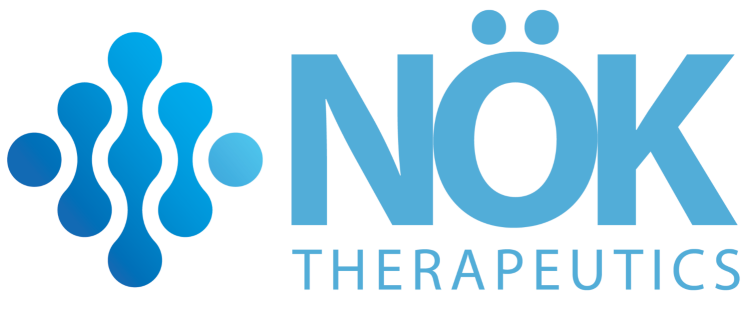Autologous NK Cell Therapy for Cancer
At NOK Therapeutics, we are pioneering an autologous natural killer (NK) cell therapy platform that offers unique advantages over the more common allogeneic NK cell therapies. Learn more about our innovative approach below.
Allogeneic NK Cell Therapy: Benefits & Limitations
Allogeneic NK cell therapies are attractive because NK cells do not induce graft-versus-host disease (GvHD) or cytokine release syndrome (CRS) as severely as T cells, making them safer for donor-derived treatments.
However, in order to ensure the persistence and efficacy of allogeneic NK cell therapies, patients typically need to undergo lymphodepletion – a high-dose chemotherapy regimen that eliminates the majority of the patient’s immune system.
This is done to ensure efficient engraftment and prevent host immune cells from rejecting the donor NK cells, similar to how organ transplants require immunosuppression. However, this procedure poses some significant strain to the therapeutic process.
Lymphodepletion has three major drawbacks.
1. Toxicities: Most lymphodepleting regimens consist of multiple infusions of high-dose chemotherapy. This is toxic and can disqualify many patients who have already undergone harsh treatments.
2. Complicates Re-Infusion: Since lymphodepletion is necessary prior to infusion, it is difficult to re-infuse cells especially infusions at a date far into the future – because another round of lymphodepletion would be required – a key limitation of allogeneic therapies.
3. Eliminates Host Immunity: lymphodepletion eliminates much of the host’s immune system, including tumor-reactive T cells, which may limit the ability for the NK cells to spark a more comprehensive anti-tumor response.
Why Autologous NK Cells? Advantages over allogeneic.
Unlike allogeneic NK cells, autologous NK cells are derived from the patient’s own body, meaning there is little to no risk of the patient’s body rejecting the infused cells. This eliminates the need for lymphodepletion before infusion. From this, three major therapeutic benefits emerge.
1. Broader Patient Eligibility
Many patients cannot undergo lymphodepleting regimens due to prior treatments, or extensive chemotherapy or radiation. By avoiding lymphodepletion, our platform broadens access to cellular therapies, enabling treatment for patient populations typically excluded from such options.
2. Feasibility of Re-Infusion
Without the need for lymphodepletion, multiple rounds of autologous NK cell re-infusion can be performed at more flexible, increasingly spaced intervals. In contrast, most allogeneic therapies require infusions to be done in a short period immediately following lymphodepletion.
3. Preservation of Host Immune System
By not depleting the host’s immune system, our autologous NK cell therapy preserves the patient’s existing immune response. This is crucial because NK cells naturally work within a broader immune context, stimulating other immune components such as dendritic cells (DCs) and cytotoxic T cells.
NOK Therapeutics
Our Ex Vivo Expansion & Autologous NK Cell Therapy Product
At NOK Therapeutics, we have developed a robust and scalable platform for the ex vivo expansion of autologous NK cells. This process is feeder-free and designed to ensure that the final cell therapy product is potent, scalable, and safe for clinical use.
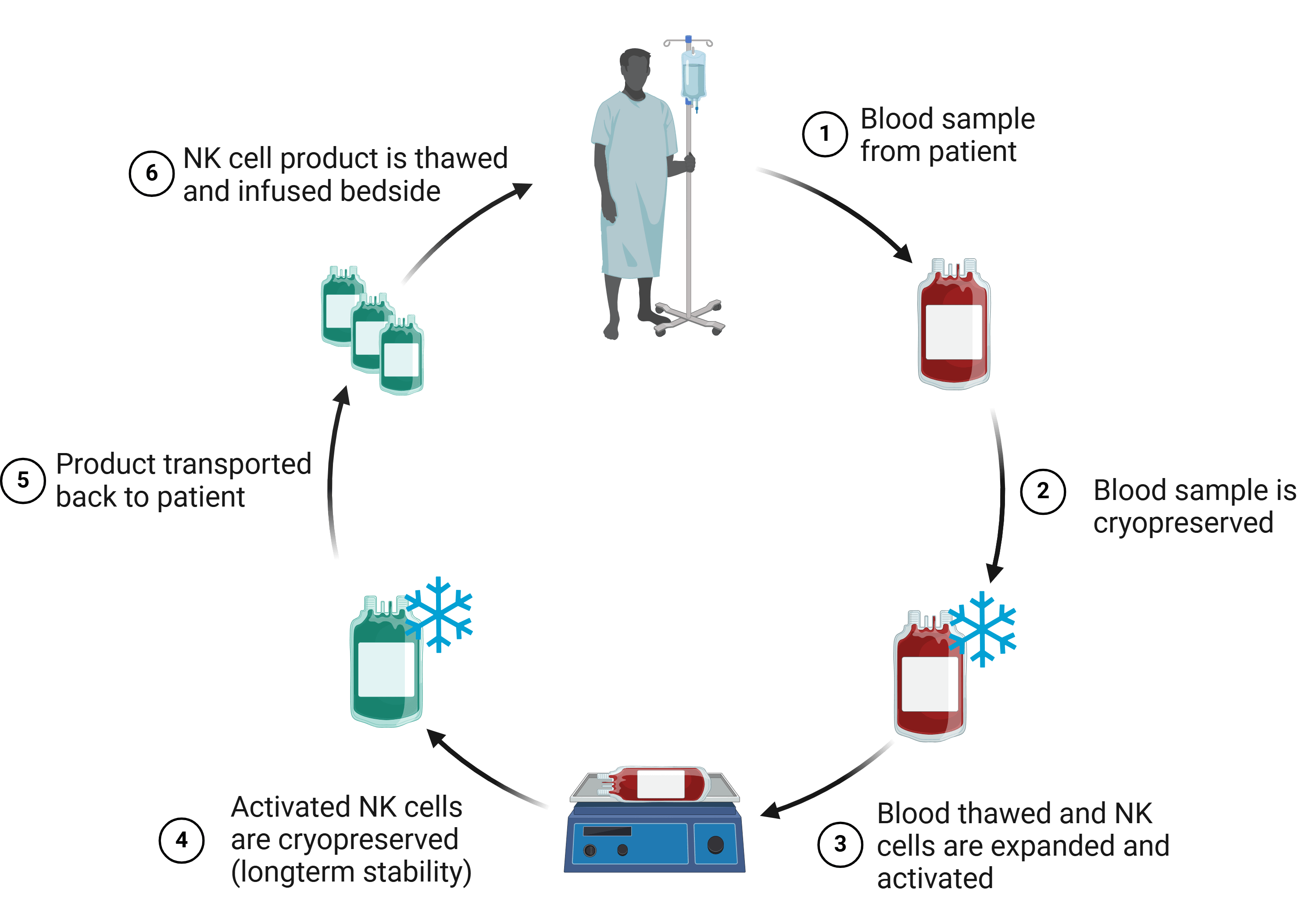
Robust Expansion
One-Time Production
Restoration of Cytotoxicity
Potent Phenotypic Charactersitics
Learn more, below.
Robust ex vivo expansion
Our NK cell therapy platform achieves an impressive 1000-2000 fold expansion of NK cells through ex vivo stimulation. This robust expansion ensures that we can generate sufficient cell numbers to deliver effective therapeutic doses to patients, enhancing the potential impact of our treatments in clinical settings.
Restoration of Cytotoxicity
In cancer patients, NK cells often exhibit suppressed cytotoxicity. However, by day 10 of ex vivo expansion, we successfully restore their cytotoxic function. This restoration is crucial for ensuring that the expanded NK cells are highly effective in targeting and eliminating cancer cells upon infusion.
Potent Cytotoxic Phenotype
Our expanded NK cells display high expression of activating receptors such as NKp44, NKp30, and NKG2D with little to no increase in the expression of inhibitory markers like PD-1 or PD-L1. These phenotypic characteristics enhance their ability to identify and kill cancer cells, making them a potent component of our therapeutic strategy without the need for genetic modifications.
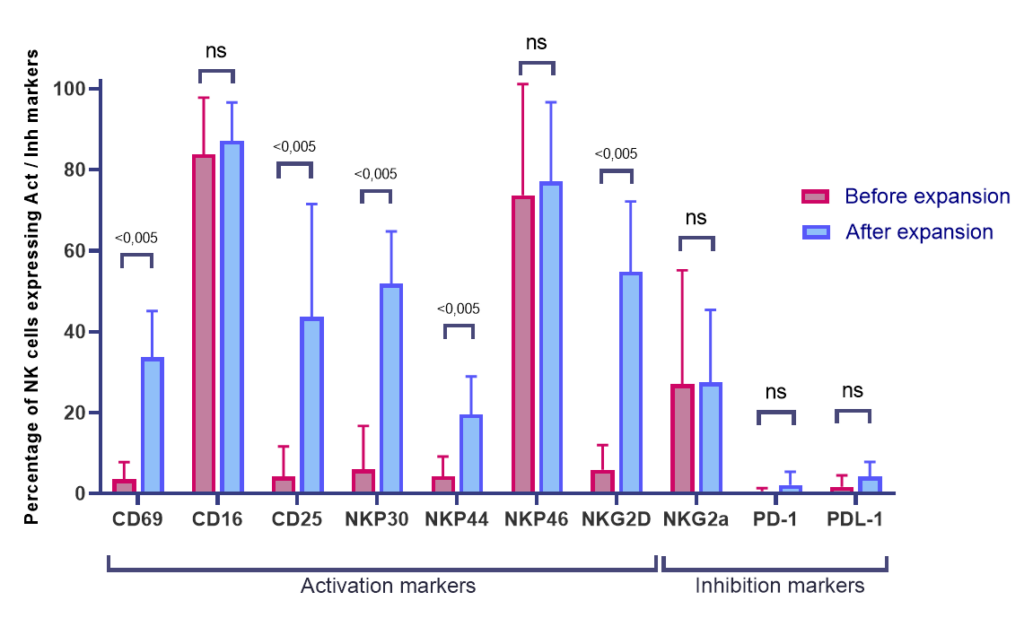
Selective Cytotoxicity
The NK cells we expand demonstrate selective cytotoxicity, effectively targeting and destroying autologous cancer cells (graph on the left) while sparing healthy cells (graph on the right). This selectivity ensures that our therapy is both effective against tumors and safe for patients, minimizing collateral damage to healthy tissues.
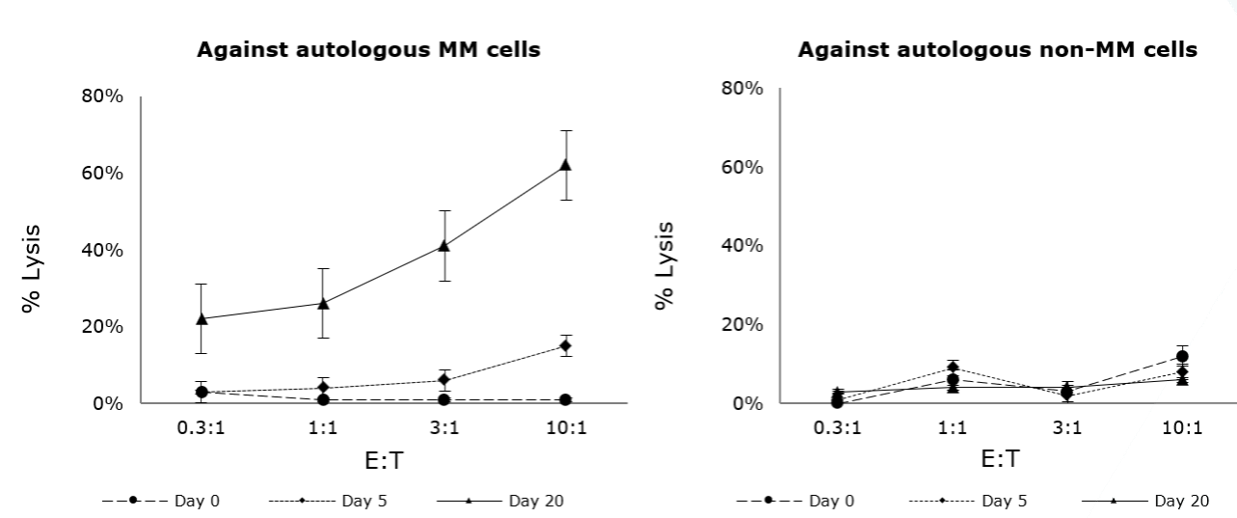
Our Strategic Clinical Development
At NOK, we are applying the right technology to the right patient population. Our pipeline focuses on minimal residual disease (MRD)-positive situations and enhancing antibody-dependent cellular cytotoxicity (ADCC). Explore our innovative strategies and clinical development plans, below.
Our Mission
At NOK Therapeutics, we are dedicated to ensuring that more cancer patients can benefit from the life-changing potential of cellular therapies, regardless of their previous treatment history or current health status.
Become an Investor
NOK Therapeutics is developing an innovative cellular therapy to address critical unmet needs in oncology, presenting a unique investment opportunity.
